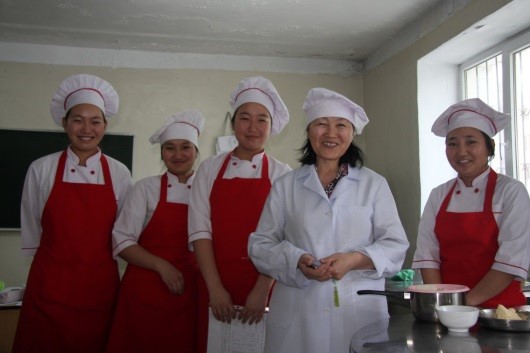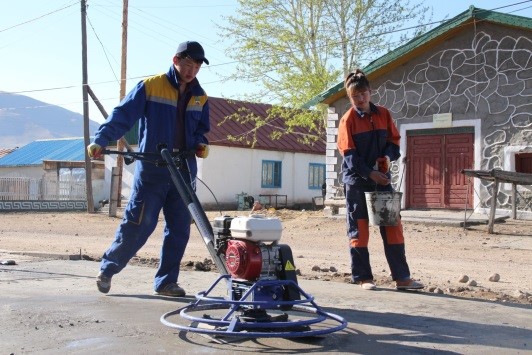The Mongolian TVET sector's success story
The development of occupational standards and curricula in Western Mongolia
Unemployment and poverty are widespread in rural areas of Mongolia and creating perspectives for jobseekers is difficult despite formal economic growth. A main reason for this is the skills mismatch which results from a theoretical and outdated VET provision. A modernized VET system is considered an effective approach to counter these fundamental problems.
The government asked SDC in cooperation with GFA to support the reform of its VET system in six of 21 Aimags (provinces). The project supports the ongoing efforts to reform the education sector which includes enhancing the role, relevance and quality of VET.
It focuses on changes in three areas:
- Awareness raising on the benefits and advantages of VET and increase attractiveness of VET within employers, students and parents.

- Improving training capacity of vocational schools in the six western Aimags in terms of management and teaching capacity, planning of VET provisions along tracer studies and regional Labour Market Information and cooperation with the private sector.
- Curriculum development and teacher training through the support of the Regional Methodological Centre (RMC) of the Western region. The RMC focuses on guidance, performance assessment and teacher training, and curriculum development towards other VET stakeholders. The RMC is able to steer the development of curricula amongst Mongolian key VET players with no donor intervention needed. This capacity is not just used in the western region but is being replicated in RMCs in the rest of the country
The development of occupational standards and curricula
The project has developed a step-by-step methodology for the participatory development of Occupational Standards and a Standard Template for Competence-Based Training Curricula Development. It allows for active participation of the private sector through the activation of VET councils and the collaboration with the Mongolian National Employers' Federation (MONEF) in its elaboration. Drafts of occupation standards are presented to the National Occupation Working Groups (NOWG) and finally approved. The VET curricula are then developed under the coordination of the Regional Methodological Centres (RMC), who provide guidance to the VET schools.
The subsequent mainstreaming of the development of occupational standards with strong private-sector participation and ownership has already begun. A number of national associations have requested assistance in the development of further occupation standards and this will be facilitated by MONEF and national working groups in the future. This structure ensures sustainability of the process.
The methodology and template have even been approved by an order by the Minister of Labour, that recommends "all types of economic entities and organizations to comply and apply this Occupation standard format (…) for future development of job description, occupation standards and training curricula." For the first time the country has a coherent and universally valid basis for a sustainable and stakeholder-owned VET development.
Several adapted and newly developed occupational standards in different occupations
 The Road Construction Association has developed another 17 occupational standards using the approved methodology and template. The project has mentored the association during this development. The Dairy Association is also planning a further 10 occupational standards. The Ministry of Labour has approved a plan for curricula development based on occupational standards following the approved methodologies and is currently, together with MONEF and the VET Councils, identifying further occupations for development of standards. The RMC worked closely together with the VET Councils and established an online data bank and a training information system. The RMC also coordinated dissemination of adapted occupation curricula
The Road Construction Association has developed another 17 occupational standards using the approved methodology and template. The project has mentored the association during this development. The Dairy Association is also planning a further 10 occupational standards. The Ministry of Labour has approved a plan for curricula development based on occupational standards following the approved methodologies and is currently, together with MONEF and the VET Councils, identifying further occupations for development of standards. The RMC worked closely together with the VET Councils and established an online data bank and a training information system. The RMC also coordinated dissemination of adapted occupation curricula
The adapted and newly developed occupational standards and the resulting curricula increase the employability of young persons and fundamentally convert the role of the private sector from a recipient to a designer of labour supply.
